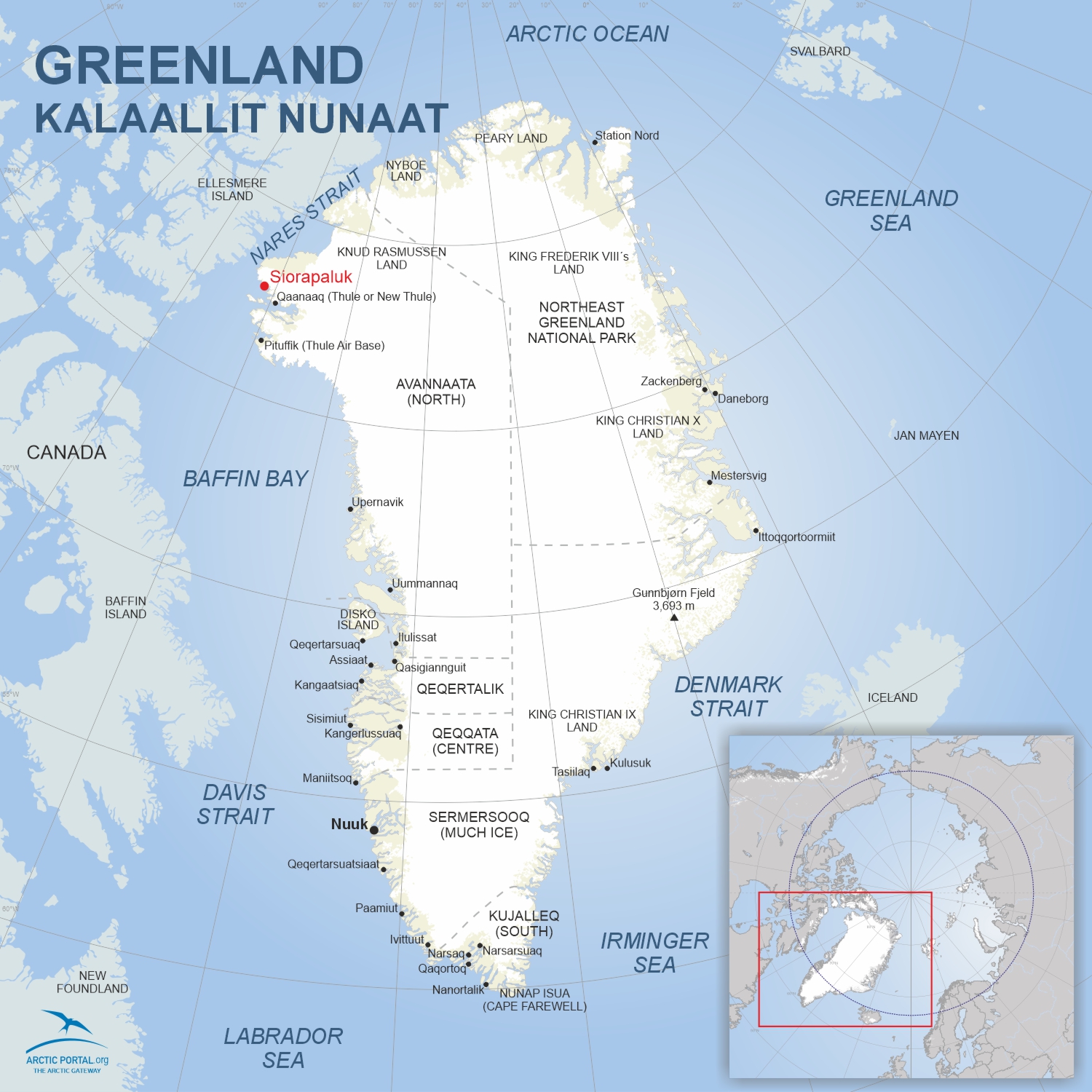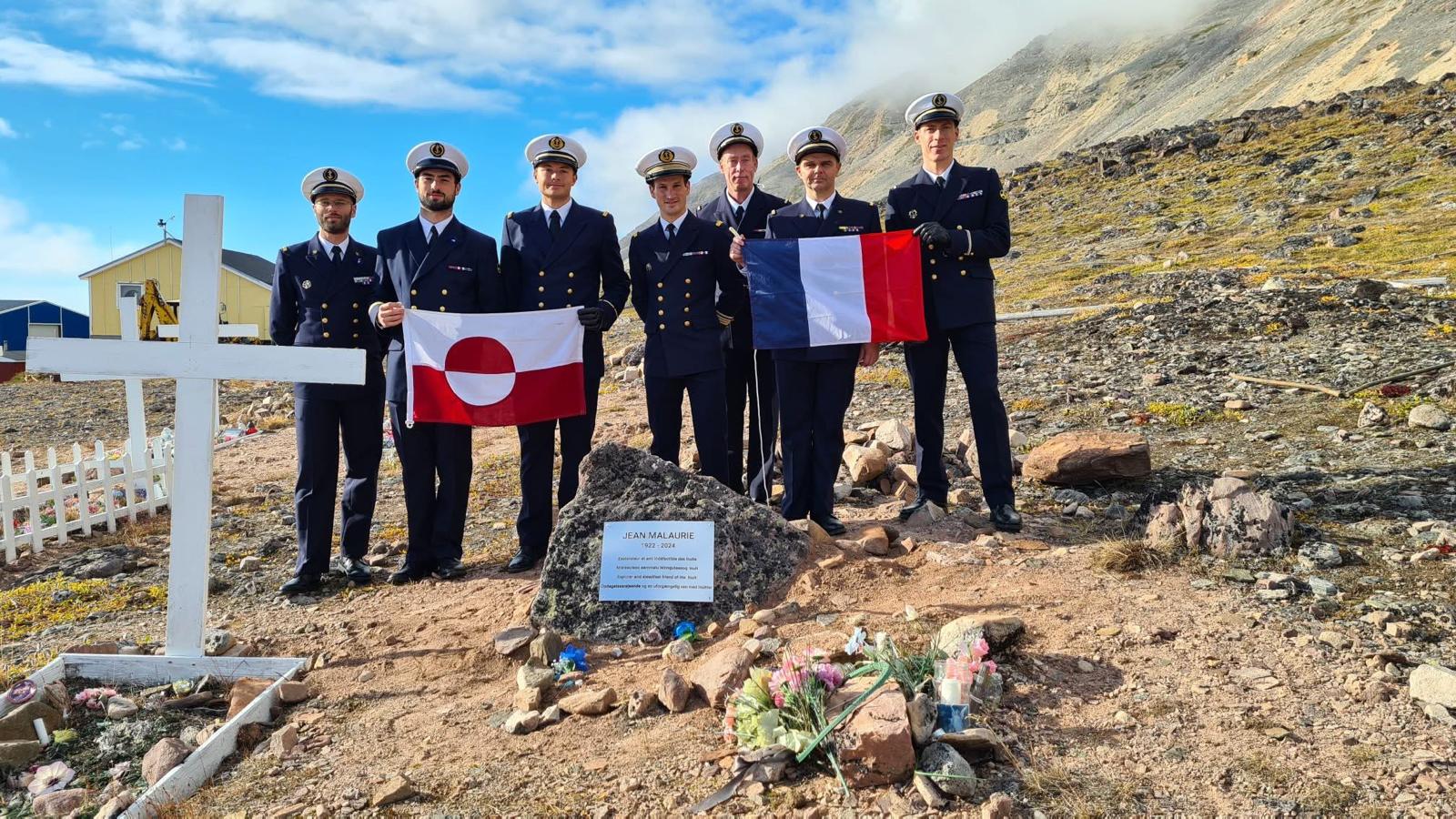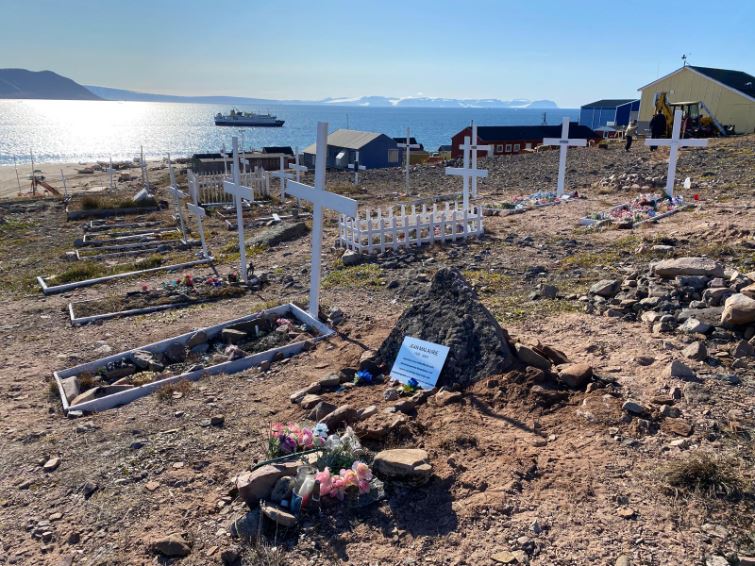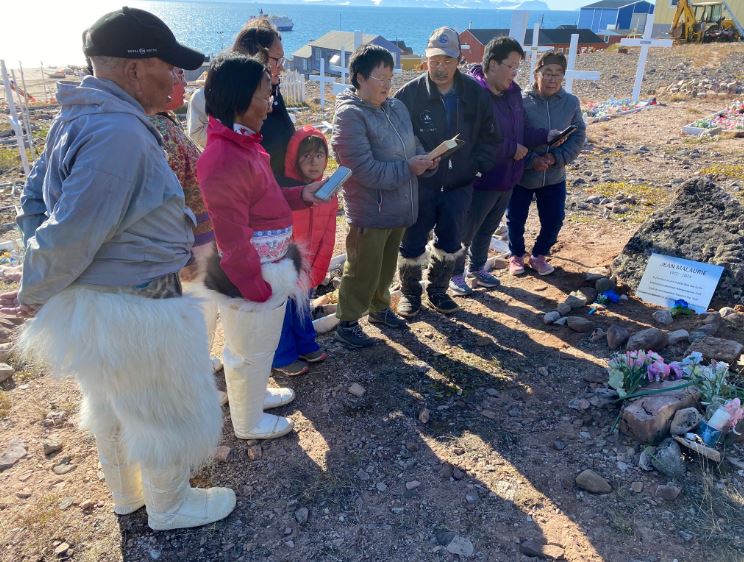On 15 August 2025, the ashes of Jean Malaurie were inhumated in the cemetery of Siorapaluk, North-West Greenland, in a ceremony attended by his son Guillaume, his three grandsons, and many members of the local community.
Siorapaluk holds a special place in Malaurie’s life: it was here, during the winter of 1950–51, that he lived among the Inughuit, an experience that profoundly shaped his worldview and inspired his classic book The Last Kings of Thule (1955).
During the ceremony, a message from H.S.H. Prince Albert II of Monaco was read aloud by Professor Jan Borm, Director of the Malaurie Institute of Arctic Research Monaco-UVSQ. The Prince paid tribute to Malaurie as a lifelong defender of Indigenous peoples of the Arctic, recalling their shared travels and their common passion for the philosophy and culture of the Far North. (to read the full text please visit Miarctic.com)
The ceremony concluded with hymns and prayers offered by the community of Siorapaluk.
 Who Was Jean Malaurie?
Who Was Jean Malaurie?
Jean Malaurie, born on 22 December 1922 in Mainz, Germany, and passing away on 5 February 2024 in Dieppe, France, was one of the great intellectual explorers of the twentieth century. A geographer, anthropologist, ethnographer, writer, and pioneer of polar studies, he devoted his life to understanding both the physical landscapes of the Arctic and the spiritual and cultural worlds of its peoples.
Educated at prestigious Parisian schools, such as Lycée Henri IV and later at the Faculty of Humanities of the University of Paris, Malaurie concluded his academic journey with a State Doctorate from the Sorbonne in 1962, a qualification that paved the way for a professorship. Yet his true classroom was the Arctic. Beginning in 1948, he undertook more than thirty expeditions to the Far North, mapping geomorphological structures, studying paleoclimatology, and documenting the life and resilience of Indigenous communities. On 29 May 1951, together with his Inuit companion Kutsikitsoq, he became the first human to reach the geomagnetic North Pole by dog sled, a feat symbolic of his philosophy of shared knowledge and partnership with the Arctic peoples.
Malaurie’s career was as expansive as the landscapes he studied. He served as Director of Research at the French National Centre for Scientific Research (CNRS) and founded the Arctic Studies Centre at the École des hautes études en sciences sociales (EHESS), where he also established the first Chair of Polar Studies in French academia. His intellectual influence extended far beyond the Arctic: in 1955, he created the landmark book series Terre Humaine, giving voice to ordinary lives and ethnographic testimonies, a series that would reshape narrative anthropology and remain under his guidance for more than six decades.
 His leadership bridged continents. In Russia, he became Honorary Dean of the Faculty of Northern Peoples and Honorary President for Life of the State Polar Academy in Saint Petersburg. At UNESCO, he was named Goodwill Ambassador in 2007 for his tireless advocacy on behalf of the environment and the cultural rights of Indigenous peoples.
His leadership bridged continents. In Russia, he became Honorary Dean of the Faculty of Northern Peoples and Honorary President for Life of the State Polar Academy in Saint Petersburg. At UNESCO, he was named Goodwill Ambassador in 2007 for his tireless advocacy on behalf of the environment and the cultural rights of Indigenous peoples.
Malaurie’s vision was deeply humanistic: he saw the Arctic not only as a space of scientific inquiry but as a homeland of peoples whose knowledge and identity must be respected and defended. Through his 31 Arctic expeditions, his scholarship, and his writings, he left behind a legacy that is both scientific and moral, a reminder that the destiny of the Arctic is inseparable from the destiny of humanity itself.
French naval officers visited Siorapaluk, Greenland two days after the ceremony, to honor the memory of Jean Malaurie at his final resting place.
Source: Miarctic.com, photos: Jan Borm Map: Arctic Portal
Related news & articles:
Jean Malaurie, 1922-2024, R.I.P.
Jean Malaurie celebrates his 100th birthday!
New book by Professor Jean Malaurie


